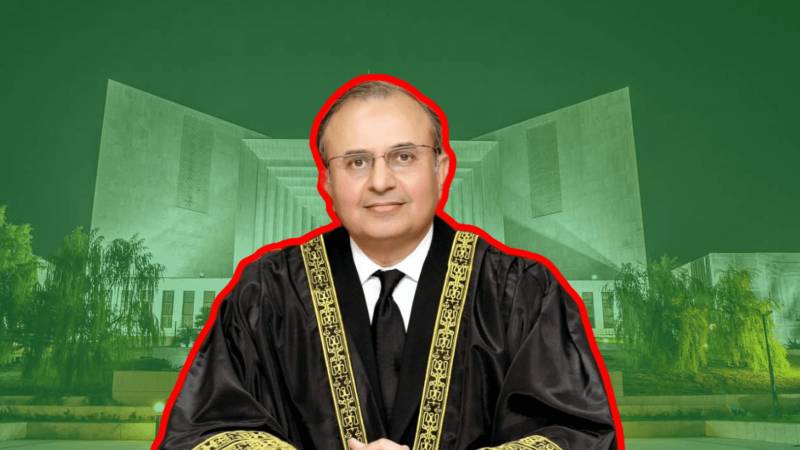
Supreme Court of Pakistan's Senior Puisne Judge Masoor Ali Shah said on Saturday that he was not too happy with the history of Pakistan's judiciary, noting there were many blackspots on it with mafias controlling the system while there are many judgements which have been criticised. But despite that, he said he wanted to credit the judiciary, which perseveres and continues to issue verdicts and perform.
He said this while addressing a panel at the Asma Jahangir Conference in Lahore on Saturday.
Justice Shah said that the data compiled by the world about Pakistan's judiciary was concerning. He said that at the moment, some two million cases are pending adjudication at various levels of the judiciary, while globally, Pakistan's judiciary is ranked at 132.
"I would not call the global ranking of Pakistani judiciary good," he said.
Justice Shah said that if he asks an additional session judge which cases he is having a problem with, the judge cannot explain to him which case is at which stage. Thus, it was necessary to introduce technology that creates a database of cases and tracks progress apart from a data analysis room and an alarm bench (to resolve issues faced by judges in improving case disposal rates).
He suggested that the judiciary improve the appointment process for new judges and upgrade the judges who have been appointed to the system.
Judges can make or break the judicial system, he said.
He said those judges who do not perform should be thrown out, adding that it cannot be that those who do not perform continue to work in the judiciary.
We must not compromise on retaining corrupt and non-performing judges, he said.
Vaguely responding to political criticism of the judiciary, Justice Shah observed that it cannot be that favourable judges are appointed just to get a verdict of choice.
He paid tribute to the Chief Justice of Pakistan, Qazi Faez Isa, who took the optimal step to endorse and implement the Supreme Court Practice and Procedure Act.
He noted that mafias control the system, but the Practice and Procedure Act can be a pathway to improving the system.
Justice Shah pointed out that judicial practices worldwide need to be reviewed. He also suggested that the number of Alternative Dispute Resolution (ADR) centres, which play an exemplary role by tackling around 30-40 percent of all cases, need to be increased in Pakistan. He pointed out that in the rest of the world, ADRs tackle around 90% of all cases.
Pointing towards the capacity issue of Pakistani courts, he said that Pakistan's population has swelled past 241 million, which puts a judge-to-population ratio of a judge to 90 million while some 70,000 new cases are registered daily. Referring to a World Bank report on high pendency of cases, Justice Shah said that 80% of cases are pending due to adjournments.
"If you can obtain a date for the next hearing without any court proceedings, then this will happen," he remarked.
He urged bar associations to look into the matter of case adjournment. "Bars are a major reason for (adjournment of cases) this," he said.
"You have no idea what it costs the litigant to make it to court. Litigants sell their flock of sheep to attend court hearings," he said, estimating that there is a single good lawyer for 1,000 litigants.
Comparing budgetary allocations by country, Justice Shah said that Brazil spends the most on its judiciary.
Supreme Court Bar Association President Shahzad Shaukat said that the judiciary is a guardian of the people's rights.
Exhorting the courts to provide justice, he said there is an attempt to become famous first.
He said that instead of attempting to become famous, the courts must give people their rights, adding that after the verdict in the Zulfikar Ali Bhutto case, the courts need to remain within their domain.
Pakistan Bar Council's Vice Chairman Riazat Ali Sahar said that courts are there to ensure the rule of law.
He thanked the Supreme Court for ensuring elections were held despite the prevailing situation and urged the court to issue a better verdict on the military courts issue.

